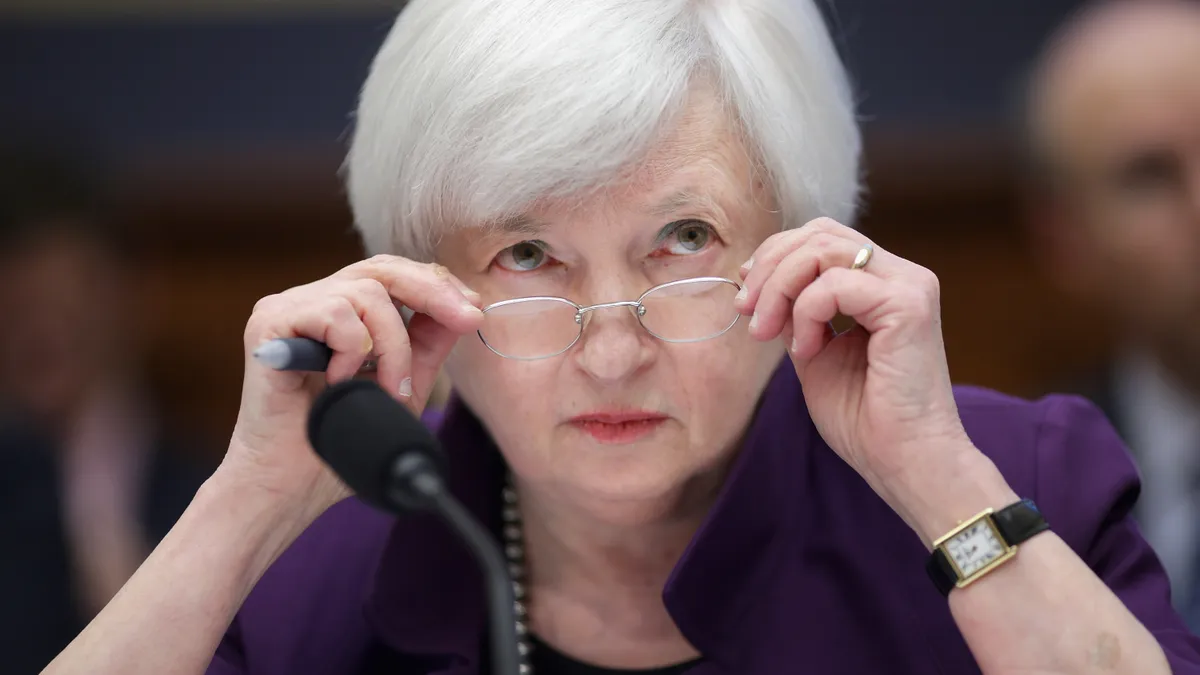The Financial Stability Oversight Council on Friday proposed a two-stage framework meant to make it easier and faster to evaluate nonbanks for designation as systemically important.
Guidance from 2019 “created inappropriate hurdles” that made the process an up-to-six-year affair, Treasury Secretary Janet Yellen said Friday.
That’s “an unrealistic timeline that could prevent the council from acting to address an emerging risk to financial stability before it’s too late,” she said.
In the first proposed stage, first, the FSOC would conduct a preliminary analysis based on available public and regulatory data. A targeted company would be notified and allowed to submit relevant information.
Nonbanks chosen for additional review would receive a more thorough evaluation in the second stage, encompassing information collected directly from the company.
Insurers, private-equity firms, hedge funds and mutual fund companies and crypto exchanges and brokerages are among the types of companies the FSOC could target with the new guidance, Bloomberg reported Friday.
If FSOC proposes designating a firm as systemically important, the company can request a hearing, and the FSOC would subsequently vote on a final designation.
The FSOC would also reevaluate prior designations annually and, at that point, companies can argue for or against certain changes in designation, explain relevant changes to business or address risks the FSOC may have identified.
Guidance prolonging the systemic importance designation process, added during the Trump administration, was “not legally required by the Dodd-Frank Act,” Yellen said. “Nor [is it] useful or feasible.”
The FSOC on Friday additionally proposed a new framework for identifying, assessing and responding to financial stability risk, Yellen said.
She emphasized that the authority to act in a crisis is vital. “Equally as important is a supervisory and regulatory regime that can help prevent financial disruptions from starting and spreading in the first place,” she said.














